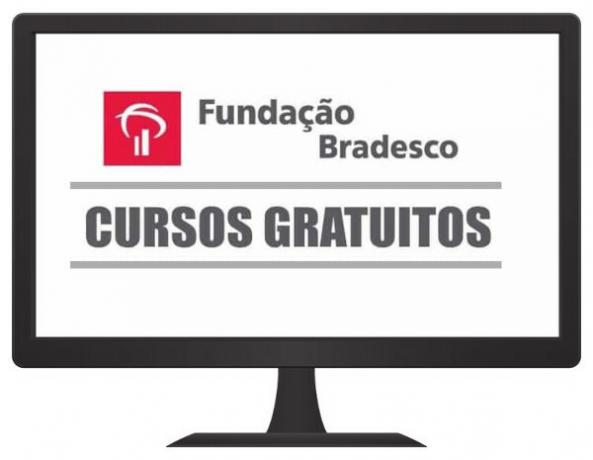The TCC methodology (Completion of course work) is the description of the detailed path you will use to explain how you did your research and what methods you used to arrive at the result.
The methodology reports in detail how your work will be built. It is through it that your TCC reader will know how you did your research, if your results are verifiable and reliable.
How to make the TCC methodology?
It is important to remember that for each course or area of study, the methodology may vary in its development process. Therefore, it is essential to follow the rules or suggestions established for your degree area.
Generally, the methodology can appear in two places on your TCC:
- at introduction from work, in a nutshell, or
- in some specific chapter, with the details of the research.
Both in detail and in the summary, it is important to contain the types of research used. However, in the detailed chapter, you should explain the specific reason you chose your research and the path you followed to get reliable results.
To make your TCC methodology in a practical way, you can follow the following way:
Define the purpose of your search
The purpose is to clarify for the researcher and for the reader of the work, the problematization of the research, that is, which issues and points of the theme will be discussed and evaluated.
There are two types of search:
- basic: aims to deepen the scientific knowledge of a given topic. In other words, the work investigates an already existing subject, deepening some specific point on the subject.
- Applied research: its purpose is to develop some knowledge, method, product or even a solution that can be applied in practice. In this type of research, the intention is to propose a change, or experiment on some subject.
See more about what is methodology and types of research,
Choose your search objective
The research objective is directly linked to the problem or question that will be developed in your work. Your search could be:
- Descriptive: is a type of research based on theoretical subjects, that is, it is one in which you use books, articles and academic papers that already address the subject you have chosen.
- exploratory: in exploratory research, in addition to bibliographically researching your subject, you also work on some fact or phenomenon. When there is field research, for example, with the application of questionnaires and interviews, it is a type of exploratory research. It is the type of research that looks for data that does not exist in books, articles or academic papers.
- explanatory: is a type of research widely used in doctoral programs, for example. The explanatory research aims to describe new knowledge that can be applied in practice.
In the development of TCCs the most common are descriptive research, or a mixture of descriptive and exploratory research.
See too what is document research and read about the difference between descriptive, exploratory and explanatory research.
Define the approach
The approach tells you how you're going to analyze the information you're going to collect in your research. Your work can be quantitative, qualitative or quali-quantitative.
- Qualitative research: is when the author of the work critically analyzes the data collected on the subject. In qualitative research, we are talking about the author's view of the work on an issue chosen to address. Here, the data is subjective because it addresses motivations, behaviors or emotions that cannot be quantified numerically.
- Quantitative research: Unlike qualitative research, quantitative research is based on data that seek to find an exact truth. Quantitative research is based on mathematical or statistical methods, obtaining accurate results. Electoral polling, for example, is a type of quantitative poll.
- Quali-quantitative research: is a type of mixed research, which relies on qualitative (subjective data) and quantitative data (data based on mathematical and statistical methods).
Example: when in an electoral survey there is data on the percentage of votes for candidates, and information collected on why voters chose their candidates and how they feel about what theirs can be. mandate.
See too what is TCC and meaning of bibliographic research.
Define the method that will be used
There are numerous methods that can be applied to TCCs, but the most common are:
- inductive method: when the author of the work observes and analyzes a specific case, in order to draw a conclusion from that.
- deductive method: it is when the author analyzes a general situation, to arrive at a specific case and from there draw some conclusion
- dialectical method: This is the type of method that research uses to analyze divergent cases. In this case, the author presents a thesis 1, then presents thesis 2, on the same topic, but which is contrary to thesis 1. Then, the author elaborates a weighting between the two theses, evaluating the valid points of one and the other, with the aim of constructing a third conclusion.
- hypothetical-deductive method: is when the author chooses a problem and establishes hypotheses that can solve it. From there, the author conducts a research to confirm whether his hypothesis can be confirmed or refuted.
- Phenomenological method: is the method that presents data and seeks to clarify it exactly as it is. In this case, the author does not explain, much less deduce the data, but interprets them for what they are.
See too how to write the TCC methodology, meaning of monograph and meaning of deductive method;
Examples of TCC methodology
Example 1
The type of research used in this article was descriptive and exploratory in relation to the objectives, as, according to Gil (1996), it provides proximity to the issue.
In this sense, building hypotheses, the methodology involves interviews with people who had experiences directly linked to the researched problem.
The procedures for collecting the above data were through bibliographic research and documentary, with a quantitative and qualitative approach, in order to relate the data to the interpretation.
During the construction of the research, the first procedure performed concerns obtaining the author's name, course, theme, abstract and year of defense of the monographs. Then, the categories of Journalism and Public Relations were defined, to better show the profile of the TCC and monographs.
The analyzed data were transformed into graphics and infographics for better visualization. Thus, the data were crossed and interpreted both in quantity and in quality to verify the profile of academic works in Social Communication at the University.
Example 2
This work aimed to carry out a study with the aim of understanding the influence of the teacher's pedagogical practice on student participation in Physical Education classes.
The research classification regarding its objectives is divided into three large groups: exploratory, descriptive and explanatory (KIPNIS, 2005). The option that came closest to the type of study was descriptive.
Descriptive research aims to describe the characteristics of a phenomenon, and uses standardized data collection techniques through questionnaires.
This study has a qualitative approach and focused on the case study of municipal schools of the Municipal Education Department of Duque de Caxias, RJ.
See too:
- What is scientific methodology?;
- Methodology Examples
- Examples of TCC justification;
- Definition of Field Research;
- Theoretical foundation;
- Theoretical Reference;
- Understand what justification is;
- What is bibliography?;
- What is a scientific article?;
- Exploratory research;
- descriptive research.


